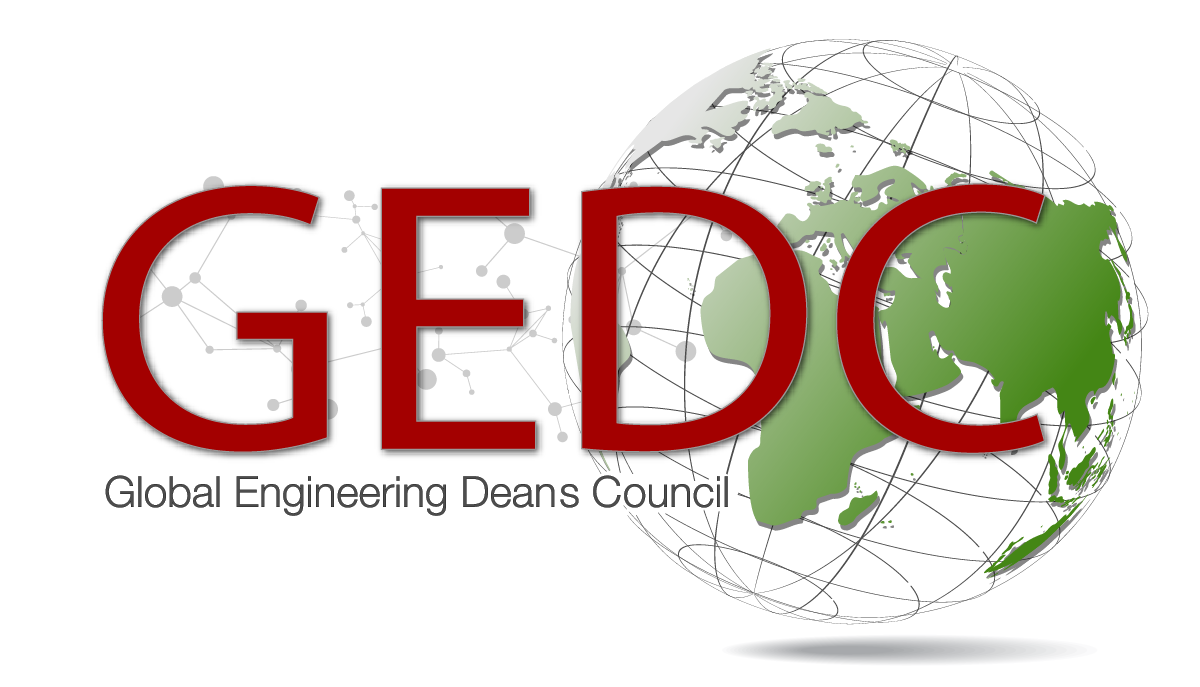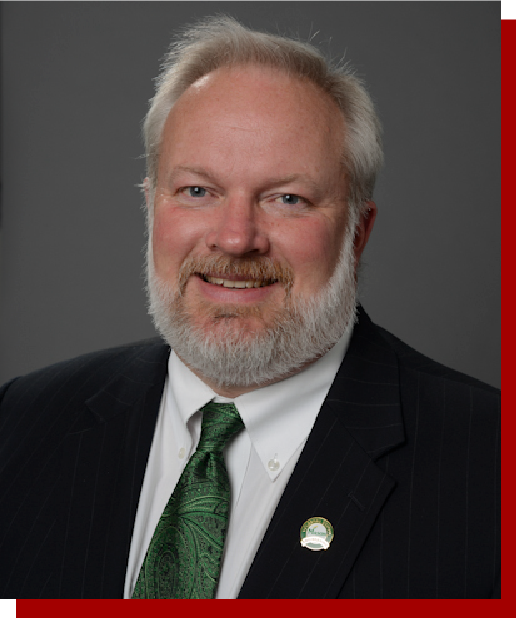As the new home to the IFEES-GEDC Secretariat, what benefits and opportunities do you envision hosting our organization at George Mason University?
I am delighted that George Mason University is able to host the IFEES-GEDC Secretariat. When exploring this possibility over a year ago with Hans, it was clear to both of us that this could be a real “win-win” situation for IFEES and Mason. Mason is the largest public research university in Virginia, and is in the U.S. National Capital Region with Washington, D.C. being a very short distance from our three largest campuses in Arlington, Fairfax, and Manassas, Virginia. We are convenient to three major airports – Washington Dulles International (IAD), Baltimore-Washington International (BWI), and Reagan National Airport (DCA) – with many direct international flights to major cities all over the world. Washington, D.C. is truly an international metropolitan area, with thousands of museums, restaurants, hotels, theaters, historic sites, monuments, attracting approximately 25 million visitors annually. Washington is also home to many foreign embassies and consulates. This makes us a very logical and beneficial location for an organization that is global in its reach and scope. We hope that Mason can serve as host for many meetings, workshops, and conferences affiliated with IFEES and GEDC over the years to come. We also will be working with Hans and IFEES-GEDC to develop our own institution’s strategic plans for advancing engineering education in a global context, and engaging our faculty and students in global programs and initiatives.
Global engagement is also a key strategic goal of George Mason University. Mason seeks to expand opportunities for global learning by creating partnerships and programs to support student and faculty mobility and collaboration. One of our campuses is located in Songdo, Korea about half-way between the airport in Incheon and Seoul. We are committed to building a community that fosters global learning, creates global understanding, and seeks global impact. To do so, we will develop strategies and initiatives that deepen the global mindset of our students and expand the reach of our faculty. We will provide additional learning opportunities that increase knowledge and strengthen global connections. We hope to leverage our association with the IFEES-GEDC Secretariat to advance our global engagement.
George Mason University seems to have a robust relationship with corporate partners. How do you manage those relationships? How do these partnerships contribute to quality education for students and opportunities for faculty in the Volgenau School of Engineering?
We are extremely fortunate to be located in the National Capital Region of Northern Virginia, which is home to thousands of companies. There are 15 companies on the Fortune 500 list that are headquartered in the D.C. area, including well-known government contractors such as Lockheed Martin, General Dynamics, Northrop Grumman, and Leidos. At Mason, we have developed strong relationships with dozens of corporate partners that benefit our students and faculty in many ways. Obviously, these companies hire many of our students, providing them with excellent career opportunities. A large number of our students also gain valuable work experience before they graduate through internships and cooperative education work experiences, not to mention part-time employment during the academic year. A significant number of our capstone senior design projects are sponsored by companies in the region. Every academic program that we offer has an Industrial Advisory Board, and the Volgenau School of Engineering also has a large advisory board comprised of C-level executives from more than a dozen companies, as well as a number of retired executives and military leaders. Senior executives from a number of important government agencies, including NSA, NIH, FCC are also represented on our advisory board. These advisory boards provide extremely valuable advice and guidance to support our academic programs in various ways. For example, they helped us to develop our relatively new degree programs in cybersecurity engineering (BS) and data analytics engineering (MS), both of which have proven to be highly successful with more than 300 students enrolled in each program after only three years. We also are privileged to have access to high-quality adjunct faculty members – working professionals who teach classes that are highly relevant and who can offer a real-world perspective to our students. In a typical semester, we appoint approximately 150 working professionals as adjunct faculty members.
To help manage all of these relationships with our corporate and government partners, I have appointed an Associate Dean for Strategic Initiatives and Community Engagement to be our primary point of contact with our School’s Industry Advisory Board and all of our corporate partners. I also meet regularly with our advisory board’s executive committee (approximately once per month, since they are all local).
Can you share with us some approaches that George Mason University is implementing in order to sustain growth in the Volgenau School of Engineering and to retain constant growth of its student body, in addition to ethnic and gender diversity?
We are very fortunate to be located in a state that is growing in population, especially in the Northern Virginia region. We are not experiencing the decline in the college-aged demographic group that afflicts other regions of the country. We also benefit from having the second largest community college system in the U.S. in our region, Northern Virginia Community College (also known as NOVA). In some of our programs, as many as half of our students enter Mason as transfer students from NOVA, after earning an Associate’s Degree. We have nurtured a very strong and mutually beneficial relationship with NOVA. Last April, Virginia Gov. Terry McAuliffe joined the presidents of George Mason University and Northern Virginia Community College to announce a groundbreaking partnership called ADVANCE that will assist students as they transfer from a two-year program and earn a four-year undergraduate degree. This partnership will increase graduation rates and smooth the path to a degree while saving students time and money. It will work in collaboration with Northern Virginia employers to adapt and create high-demand programs to fill the region’s critical workforce needs. Also, since the student population entering higher education through a two-year institution is demographically much more diverse ethnically, by facilitating the successful transition to Mason through NOVA, our own student population will become much more diverse as well. Mason already is a minority-majority university, with more than half of our student population coming from underrepresented groups. We have a particularly large percentage of students who are first-generation Americans and first-in-their-families to attend a university, not to mention a large population of “Dreamers.” Northern Virginia is ethnically a very diverse place, and our student population reflects this. As for gender diversity, like most engineering programs, we would like to see more young women enroll in our programs, and we have a number of outreach programs such as summer camps and day-long events and symposia that have proven to be very effective to meet this goal. I have appointed a “Director of Outreach Programs” for the Volgenau School of Engineering, and the number of young women who have participated in our outreach programs is growing every year.
What are your top five priorities as dean, and where do you plan to take the Volgenau School of Engineering over the next five years?
My top priority as dean is to sustain the amazing growth that we have experienced over the past five years. When I began my tenure as dean in 2012, the Volgenau School enrollment was approximately 4600 students with about 160 full-time faculty members, and our annual research expenditures were around $18 million. Next fall, we expect to surpass 8200 students, $30 million in research awards, and 230 faculty members. The most recent Carnegie classification of research universities added Mason to the ranks of the top tier “R1” research universities, and Mason’s total research expenditures exceed $100 million. The university’s strategic plan sets a goal of increasing this amount to $225 million by 2024. We are laying the foundation for the Volgenau School to increase research expenditures to $100 million by 2024 in support of the university’s goal. Since we strive to engage all of our students in experiential learning and discovery through research, this supports our overall academic mission as a research university. Growing research also creates more opportunities for our faculty, and will allow us to attract and retain the very best faculty members and graduate students. We will most likely develop several new degree programs, working with our corporate partners and advisory boards to identify current and projected workforce needs, and will expand our online course and degree offerings and professional education programs. We also expect to exceed 10,000 students and 325 faculty members over the next four years, and hopefully, we will see our rankings and reputation advance as well. Finally, we hope to significantly broaden our global engagement and establish many new partnerships with other institutions and organizations around the world.
In your opinion, what are some significant issues and topics that ought to be addressed by the global engineering education community, particularly by engineering deans, to strengthen inter-regional communication and continue to globalize this field of study. ?
I’ll offer a very general and high-level answer to this question. I am convinced that broadening participation in engineering, both in the U.S. and globally, will have an enormous positive impact on all societies worldwide. Our best chance for lasting peace and prosperity everywhere is to enhance the quality of life for all people. I am a big fan of the U.S. National Academy of Engineering’s Grand Challenges and the Grand Challenge Scholars Program. The 14 grand challenges for engineering, if successfully conquered, will transform lives in ways that everyone can understand. They are grandiose, and are an effective way to attract more young people to pursue an engineering education and career since they can capture the imagination and create excitement about engineering. In the U.S., less than 5% of all college majors are in engineering. Worldwide, this number is harder to estimate but is likely around 20% to 30% at most. How can we dramatically increase the number and diversity of our engineering students? How can we dispel widespread and mistaken stereotypes about engineering, such as all engineers are socially inept and we all design and manufacture gears and automobiles? Just try doing a Google image search with the keyword “engineer” and count the number of images of gears that appear! Once it is widely understood that the world’s most pressing problems can be effectively addressed and solved by engineers who have had a broad education with global experiences to extend their worldview and cultural awareness, we will begin to see real progress towards broadening participation in engineering. We all must work together to advance our profession worldwide, and IFEES-GEDC certainly will play an essential role in bringing us together as leaders in engineering education to establish best practices, to create new programs and partnerships, and to expand our influence as a global engineering community to create peace and prosperity on every continent for all nations.

